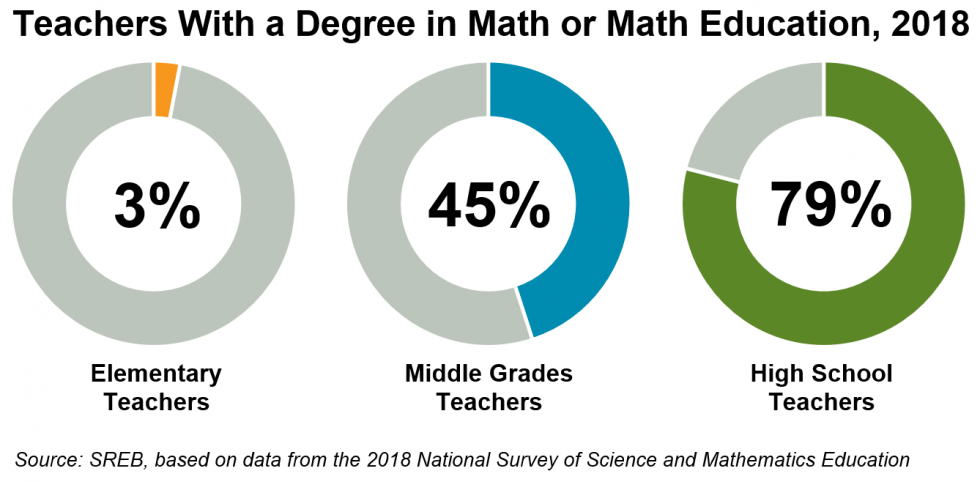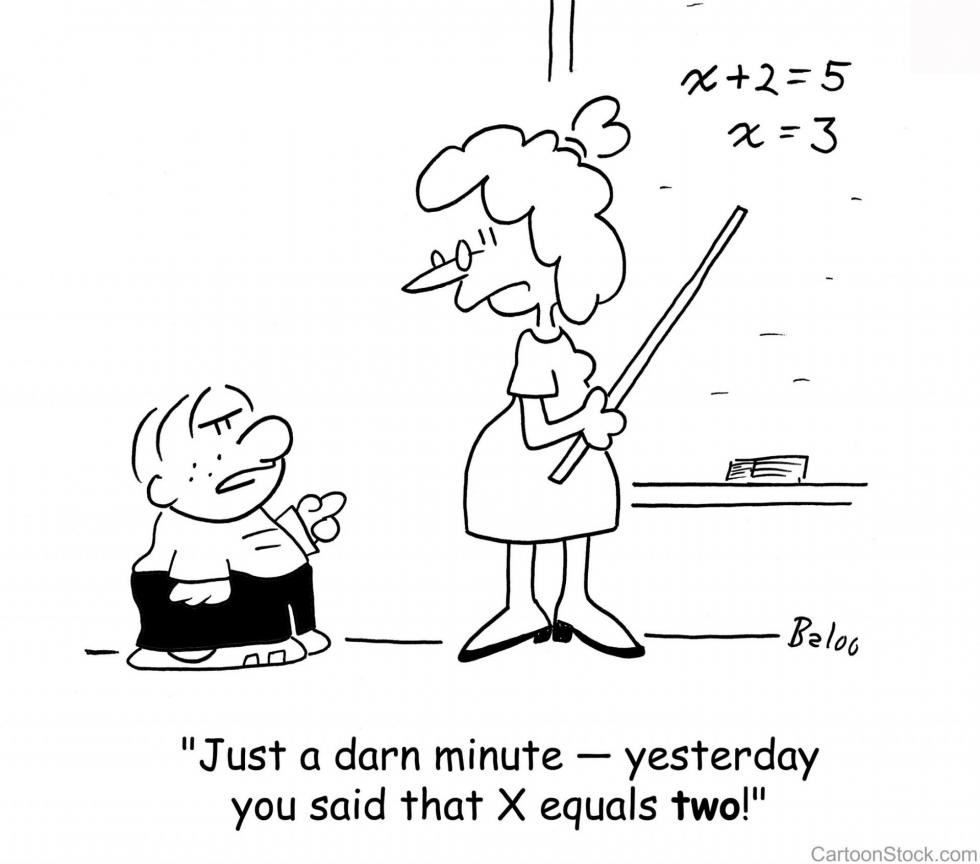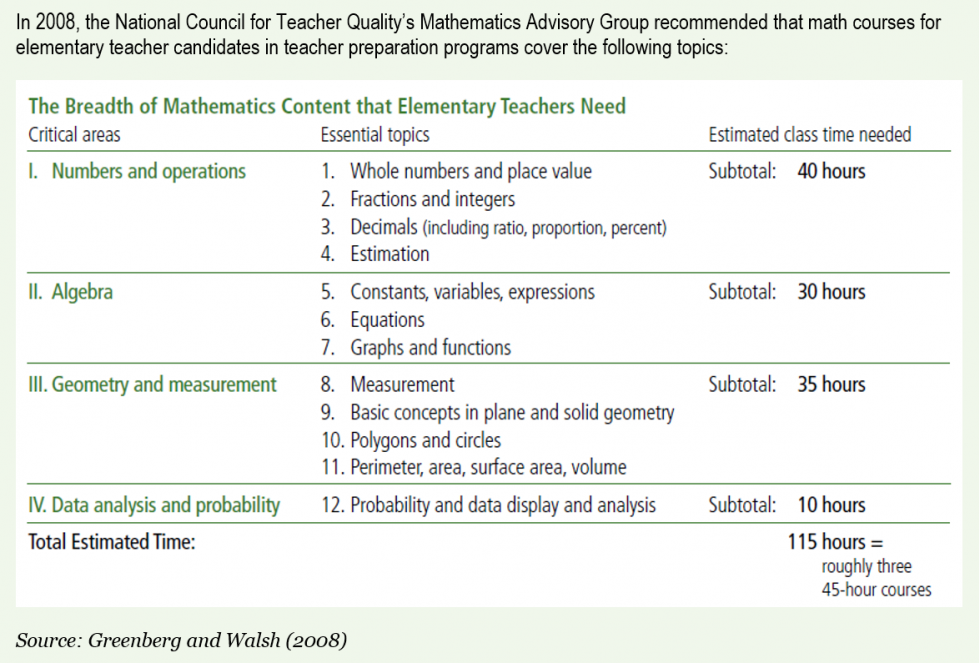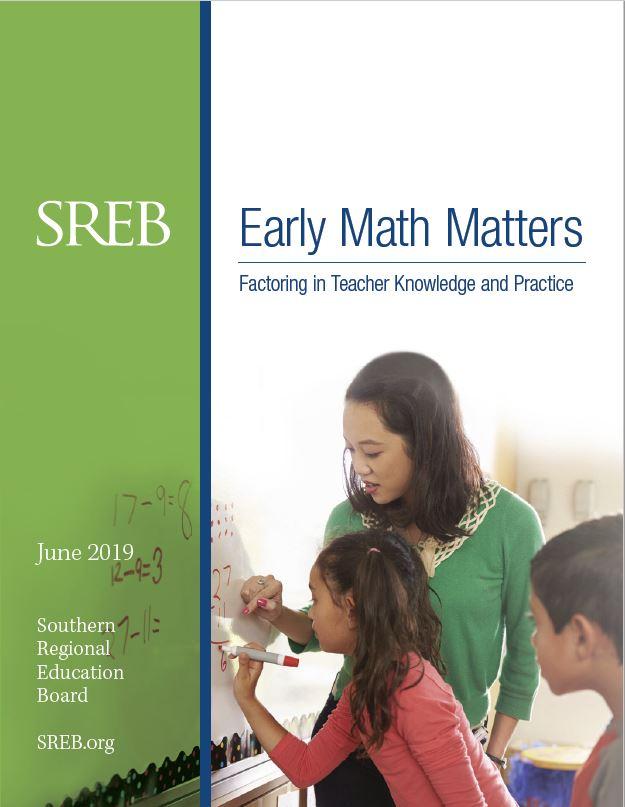Giving Elementary Teachers the Tools to Teach Math Well
Broad preparation can leave math-specific knowledge lacking
 It’s no secret that aspiring
teachers with strong math backgrounds tend to be drawn toward the
secondary grades, where they can just teach math. In fact,
results of the 2018 National Survey of Science and Math
Education showed that just 3 percent of elementary teachers
surveyed held a degree in mathematics or math education, compared
with 45 percent of middle grades math teachers and 79 percent of
high school math teachers.
It’s no secret that aspiring
teachers with strong math backgrounds tend to be drawn toward the
secondary grades, where they can just teach math. In fact,
results of the 2018 National Survey of Science and Math
Education showed that just 3 percent of elementary teachers
surveyed held a degree in mathematics or math education, compared
with 45 percent of middle grades math teachers and 79 percent of
high school math teachers.
Because elementary teachers are usually responsible for teaching all core subjects, their preparation must cover language arts, math, science and social studies. Every educator preparation program finds a different way to balance these topics. But many programs don’t require enough math courses to make sure new teachers are equipped to teach the subject well.
A 2016 NCTQ review of undergraduate elementary teacher preparation programs found that just 13 percent of the 860 programs examined covered critical math topics, including numbers and operations, algebra, geometry, and data and probability. And in 2018, a similar review of graduate programs found that just 1 percent of 201 programs covered these topics. These low rates could help explain why a 2019 NCTQ report found that 1 in 4 teacher candidates failed the math portion of a common elementary licensing exam the first time they took it.
 Building future teachers’ math
content knowledge during their preparation programs is essential.
In 2011, the Center for
American Progress argued that, on average, teacher candidates
in the United States have lower levels of math knowledge than
teachers in countries that do better on international comparisons
of math achievement. For example, a 2014 literature
review found that preservice teachers tended to struggle with
understanding and representing fractions, understanding the
concepts of decimals and place value, and flexibly solving
algebraic problems. The authors concluded that preservice
teachers may know how to use algorithms to solve a problem, but
they often can’t explain why the algorithms work. This finding
was reiterated in
2016. If a teacher doesn’t understand why a mathematical
process works, how can she fully teach that process to students?
How can she troubleshoot a student’s difficulties in
understanding it or mistakes in applying it?
Building future teachers’ math
content knowledge during their preparation programs is essential.
In 2011, the Center for
American Progress argued that, on average, teacher candidates
in the United States have lower levels of math knowledge than
teachers in countries that do better on international comparisons
of math achievement. For example, a 2014 literature
review found that preservice teachers tended to struggle with
understanding and representing fractions, understanding the
concepts of decimals and place value, and flexibly solving
algebraic problems. The authors concluded that preservice
teachers may know how to use algorithms to solve a problem, but
they often can’t explain why the algorithms work. This finding
was reiterated in
2016. If a teacher doesn’t understand why a mathematical
process works, how can she fully teach that process to students?
How can she troubleshoot a student’s difficulties in
understanding it or mistakes in applying it?
“If a teacher doesn’t understand why a mathematical process works, how can she fully teach that process to students? How can she troubleshoot a student’s difficulties in understanding it or mistakes in applying it?”
The good news: experts agree on the knowledge and skills teachers need. In 2008, NCTQ’s Mathematics Advisory Group’s No Common Denominator report agreed with earlier recommendations for teacher preparation made by other expert groups, including the National Mathematics Advisory Panel, NCTM and the Conference Board of the Mathematical Sciences.
The advisory group strongly recommended that elementary teacher candidates take at least three math courses designed specifically for future teachers, as well as one math methods course that covers subject-specific instructional strategies. These courses should focus on elementary and middle school topics — numbers and operations, algebra, geometry and measurement, and data analysis and probability — and be taught by professors who can connect the math content to elementary classroom instruction.
It may be surprising to hear that elementary teachers need content knowledge in areas like algebra, data analysis and probability — topics we usually associate with middle school math and beyond. But good math instruction for young students begins to build foundations in these areas. Elementary teachers need to understand not just the topics they teach, but also where that content is headed in future grades. Teachers also need to know how to develop students’ understandings and thinking patterns to equip them for later learning in math. Developing this knowledge requires the right types of courses: taking general math courses like calculus or college algebra isn’t enough.
“Elementary teachers need to understand not just the topics they teach, but also where that content is headed in future grades.”
Every elementary teacher deserves the math preparation she needs for the classroom. Laying a strong foundation in the elementary grades is critical if students are to do well in algebra and beyond. Preparing teachers to do this may mean that elementary teacher preparation programs — and states — need to rethink their course and credit-hour requirements for math.
For more information about current requirements, see SREB’s Early Math Matters report.



